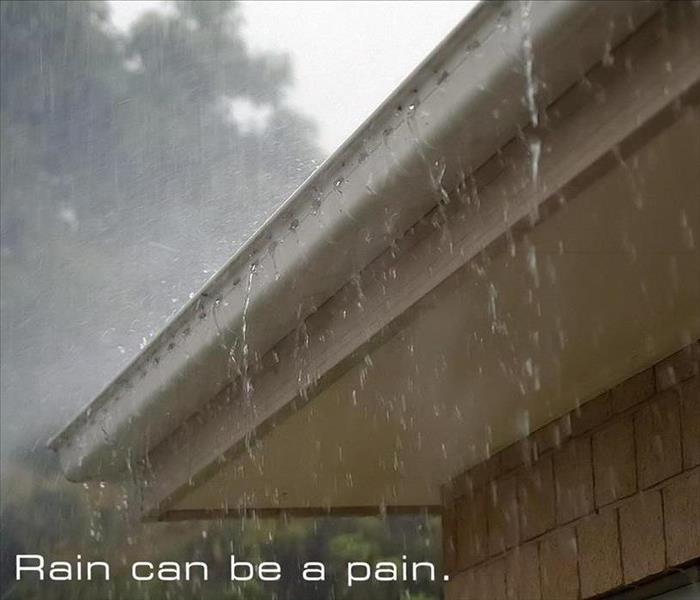Prevent Roof Leaks During a Storm
12/30/2019 (Permalink)
Maintenance is crucial for the longevity of your roof. It's fully exposed to all elements of weather which can take a toll on your roof. What can you do if your roof is leaking? Inspecting it yourself can seem daunting, and hiring a roofer may be costly. Is there a simpler solution?
What to Do During a Storm:
If you catch a leak during a storm...
- Locate the Source of the Leak
If you don't have a leak detector, infrared camera, or infrared camera app, you can locate the source manually.
Leaks most commonly occur near roof protrusions such as chimneys, vents, plumbing, or anything protruding through your roofing material. Look closely for water staining. If it's currently raining you may be able to trace the drips.
2. Prevent Further Damage
Once you've located the leak, take the necessary measures to prevent further damage. Use a bucket or pan to collect dripping water. If water is pooling in ceiling, a small puncture will relieve the pressure and allow the water to drain.
Use roofing materials such as traps, sandbags, or boards to cover the leak and prevent water from entering home.
Prevent Future Leaks to Your Roof:
1. Check the Attic
Common attic problems could be a direct culprit to your roof leaks. During your next roof inspection, don't forget to check the attic. Signs of Mold, Soaked insulation, Stains around Nails, or Clogged Intake Vents will be clear signs.
2. Inspect, Inspect, Inspect!
Gutters, Shingles, and Protruding Parts can all lead to leaks. Clogged gutters can cause a water back up under your shingles or other roofing materials. Shingles need to be properly secured, and missing/broken shingles need to be replaced. As we learned earlier, protruding parts are the main culprits of roof leaks. Make sure the seals are tight so water can't leak through.
If you have questions regarding roof leaks, contact SERVPRO® of Downey. We'd be happy to assist you in resolving your roof leak.






 24/7 Emergency Service
24/7 Emergency Service
